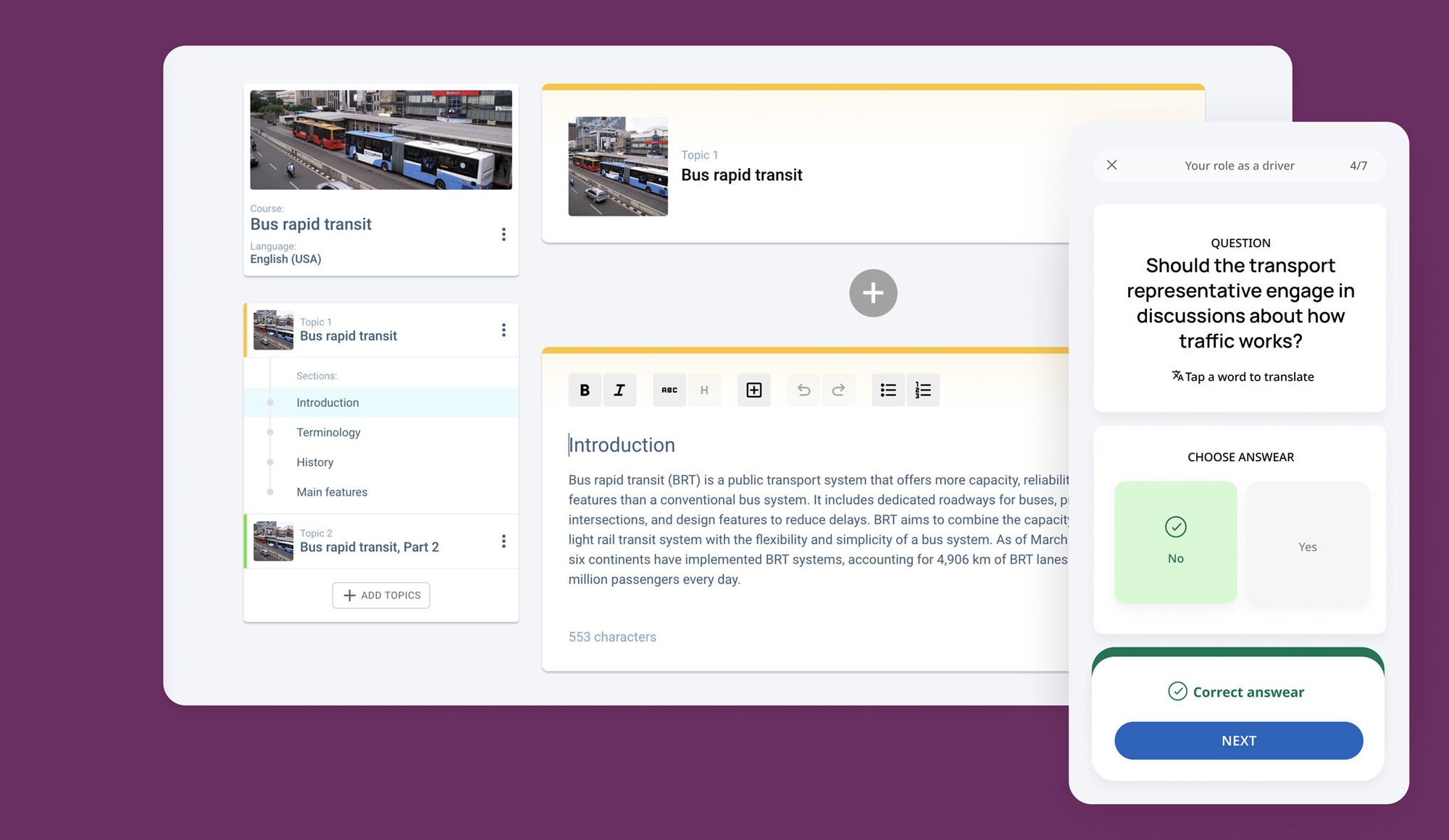The UK hospitality industry is dynamic and thriving, encompassing hotels, restaurants, pubs, and bars. With its fast-paced nature and high customer demand, businesses in this industry must prioritise health and safety. This comprehensive guide will explore key legislation, typical hazards, risk assessment, employee training, and other important UK workplace health and safety regulations.
Essential health and safety legislation
Several essential health and safety legislations govern the UK hospitality industry. Understanding these legislations is vital for businesses to ensure compliance and maintain a safe working environment.
1. Health and Safety at Work etc. Act 1974
The Health and Safety at Work etc. Act 1974 is the primary legislation that sets out the general duties of employers, employees, and self-employed individuals to ensure workplace health, safety, and welfare. It forms the foundation for health and safety management in all industries, including hospitality.
2. The Management of Health and Safety at Work Regulations 1999
The Management of Health and Safety at Work Regulations 1999 build upon the Health and Safety at Work etc. Act 1974 and outline specific requirements for managing health and safety in the workplace. These include conducting risk assessments, developing policies and procedures, providing adequate training, and ensuring ongoing compliance with safety standards.
3. Other relevant UK workplace health and safety regulations
Alongside the two central legislations, various other regulations and codes of practice specifically apply to the hospitality industry. These include the Food Safety Act 1990, the Control of Substances Hazardous to Health (COSHH) Regulations 2002, the Regulatory Reform (Fire Safety) Order 2005, and many more. Businesses must be aware of these regulations and ensure compliance to protect their employees' and customers' health and safety.
Furthermore, in addition to the abovementioned legislations, the UK hospitality industry also adheres to the Reporting of Injuries, Diseases and Dangerous Occurrences Regulations 2013 (RIDDOR). This regulation requires employers, the self-employed, and people in control of work premises to report and keep records of inevitable work-related accidents, diseases, and dangerous occurrences. This ensures that any incidents that may pose a risk to health and safety are adequately documented and investigated.
Moreover, the Control of Noise at Work Regulations 2005 is another crucial regulation in the hospitality industry. Excessive noise can harm employees' health and well-being, leading to hearing loss and increased stress levels. This regulation sets out the requirements for employers to assess and control noise levels in the workplace, ensuring that employees are protected from the harmful effects of excessive noise exposure.
By understanding and complying with these additional regulations, businesses in the UK hospitality industry can create a safer and healthier working environment for their employees. Employers must prioritise health and safety to meet legal requirements and foster a positive and productive work culture.
Common hazards in the hospitality industry
The hospitality industry is not without its hazards. Businesses must identify, assess, and manage these risks, from slippery floors to potential fire hazards. Some of the most common hazards in the hospitality industry include:
- Slips, trips, and falls
- Fire hazards
- Food safety and hygiene risks
- Gas and electricity hazards
- Hazardous chemicals
By understanding these hazards and implementing appropriate control measures, businesses can significantly reduce the risk of accidents and injuries.
Slips, trips, and falls are a significant concern in the hospitality industry, especially in areas with high foot traffic, such as hotel lobbies and restaurant dining areas. Factors such as wet floors from cleaning or spilt drinks can increase the likelihood of accidents. Employers should ensure staff are trained to address and clean up spills to prevent slips and falls.
Fire hazards are another critical risk in the hospitality industry, with kitchen areas being particularly vulnerable due to the use of open flames and hot cooking equipment. Proper fire safety measures, including fire extinguishers, smoke alarms, and staff training on evacuation procedures, are essential for businesses. Regular fire drills should also ensure that all employees are prepared during a fire emergency.
Risk assessment and management
Risk assessment lies at the heart of adequate health and safety legislation. It involves identifying potential hazards, assessing their risk level, and implementing control measures to mitigate them. In the hospitality industry, risk assessments should cover a wide range of areas, including workplace safety, food safety, fire safety, and more. Regular reviews and updates of risk assessments are essential to ensure ongoing protection.
When conducting risk assessments in the hospitality sector, it is crucial to consider not only employees' safety but also customers' well-being. For instance, in a restaurant setting, food preparation and service risks must be carefully evaluated to prevent foodborne illnesses and ensure customer satisfaction. Additionally, factors such as the structural integrity of the building, the maintenance of kitchen equipment, and the training of staff in health and safety procedures all play a vital role in maintaining a safe environment for both employees and patrons.
Furthermore, risk assessment is not a one-off task but an ongoing process that requires constant vigilance and adaptation. As new technologies emerge and industry standards evolve, hospitality businesses must stay abreast of these changes to update their risk assessments accordingly. By fostering a culture of risk awareness and proactive risk management, organisations can create a safer and more secure environment for everyone involved.
Employee training and awareness
Ensuring that employees are adequately trained and aware of health and safety legislation is crucial for maintaining a safe working environment. Businesses should provide comprehensive training that covers topics such as manual handling, fire safety, food handling, and emergency procedures. Regular refresher training sessions can help reinforce knowledge and keep employees updated with any changes in regulations or guidelines.
Moreover, businesses must tailor their training programmes to specific job roles and tasks. For example, employees working in a warehouse may require training on how to safely operate heavy machinery and handle hazardous materials. At the same time, office workers may need training on ergonomics and computer workstation setup to prevent musculoskeletal disorders.
Additionally, interactive training methods such as simulations, role-playing exercises, and quizzes can enhance employee engagement and knowledge retention. By making training sessions more interactive and engaging, businesses can ensure that employees understand the importance of health and safety protocols and feel confident applying them in real-life situations.
Main aspects of health and safety in the UK hospitality industry
1. Health and safety policies and procedures
All hospitality businesses should have robust health and safety policies and procedures. These documents outline the company's commitment to health and safety, establish protocols for reporting incidents and hazards, and set out the responsibilities of both management and employees.
2. Food safety and hygiene
Maintaining high levels of food safety and hygiene is of utmost importance in any food-related business. This includes regular cleaning and sanitisation, proper food storage, safe handling practices, and adherence to relevant food safety regulations. Businesses should also have a designated food safety officer who oversees compliance and implements necessary measures.
3. Fire safety measures
Due to the potential for fire hazards, all businesses in the hospitality industry must have adequate fire safety measures in place. This includes installing fire detection systems, providing adequate firefighting equipment, conducting regular fire drills, and ensuring that escape routes are clear and well-marked.
4. First aid and emergency procedures
Having trained first aiders and appropriate first aid facilities is essential in any workplace. Hospitality businesses should ensure that staff members are trained in first aid and that first aid kits are well-stocked and easily accessible. Clear emergency procedures should also be in place to guide employees on what to do during an incident or emergency.
5. Slips, trips, and falls
Slips, trips, and falls are some of the most common accidents in the hospitality industry. Businesses should minimise these risks by keeping floors clean and dry, using appropriate signage, maintaining proper lighting, and providing suitable footwear for employees in areas prone to spills or slippery surfaces.
6. Gas and electricity
Gas and electricity are crucial resources in the hospitality industry, but they pose significant risks if not managed properly. Regular checks and maintenance of gas appliances, electrical systems, and equipment are essential to prevent accidents and ensure the safety of both employees and customers.
7. Hazardous chemicals
The use of cleaning agents and chemicals is every day in the hospitality industry. It is essential for businesses to properly store, handle, and label these hazardous substances, as well as provide appropriate personal protective equipment (PPE) for employees who work with them. Training on the safe use and disposal of chemicals should also be provided.
Furthermore, it is worth noting that the UK hospitality industry is subject to regular inspections by health and safety authorities. These inspections ensure compliance with regulations and identify potential risks or improvement areas. Inspectors may visit unannounced establishments and conduct thorough assessments of various health and safety aspects, including those mentioned above.
In addition to the legal requirements, many businesses in the hospitality industry go above and beyond to prioritise the well-being and safety of their employees and customers. They may implement additional measures such as regular staff training sessions, safety awareness campaigns, and reward systems to encourage safe practices. By fostering a culture of health and safety, these businesses protect their workforce, enhance their reputation, and build trust with customers.
The role of technology in health and safety
Technology is crucial in enhancing health and safety practices in the hospitality industry. From automated monitoring systems to digital training platforms, businesses can leverage technology to streamline processes, improve compliance monitoring, and enhance employee training and awareness.
One key aspect of technology in health and safety is the use of wearable devices. These devices can track vital signs, monitor exposure to hazardous materials, and alert workers to potential risks in real-time. For example, in a kitchen, chefs can wear bright aprons that detect heat levels and remind them to take breaks to prevent overheating or exhaustion.
Furthermore, virtual reality (VR) and augmented reality (AR) technologies are increasingly used in health and safety training. Employees can undergo realistic simulations of emergencies or hazardous conditions, allowing them to practice their responses in a safe and controlled environment. This not only improves their skills and preparedness but also reduces the risk of accidents in the workplace.
Compliance and enforcement
Compliance with health and safety policy is not only a legal requirement but also essential for protecting the well-being of employees and customers. Regulatory bodies such as the Health and Safety Executive (HSE) enforce these regulations and have the power to inspect workplaces, issue notices, and prosecute those who fail to comply. Businesses should strive to maintain a proactive approach to health and safety to ensure compliance and avoid penalties.
Furthermore, businesses must understand that compliance with health and safety regulations goes beyond avoiding penalties. By prioritising the well-being of their employees and customers, companies can create a positive work environment that fosters productivity and loyalty. Employees who feel safe and valued are likelier to be engaged in their work and contribute positively to the business's success.
Moreover, maintaining high standards of health and safety can also enhance a business's reputation. Customers are increasingly conscious of the ethical practices of the companies they engage with, and a solid commitment to health and safety can help build trust and loyalty among consumers. By demonstrating a dedication to compliance and enforcement, businesses can differentiate themselves from competitors and attract a more discerning customer base.
Discover the benefits of Lingio for your health and safety training
At Lingio, we understand the importance of adequate health and safety training in the hospitality industry. Our innovative approach combines artificial intelligence, gamification, and expert coaching to make learning informative, engaging, and enjoyable.
With our employee training software, we tailor training to meet the unique needs of your staff, ensuring that they retain vital information and apply it confidently in real-world scenarios. Ready to transform your health and safety training experience? Book a demo today and see how Lingio can elevate your team's learning journey.
FAQs
1. What are the most common health and safety hazards in the hospitality industry?
The most common health and safety hazards in the hospitality industry include:
- Slips, trips, and falls
- Fire hazards
- Food safety and hygiene risks
- Gas and electricity hazards
- Hazardous chemicals
2. How often should risk assessments be conducted in the hospitality industry?
Risk assessments should be conducted regularly and reviewed periodically to ensure ongoing safety. The frequency of risk assessments can depend on the specific hazards present, changes in operations, and legal requirements. It is essential to update risk assessments whenever significant changes to the workplace or new hazards are identified.
3. What is the importance of employee training in health and safety?
Employee training is crucial for maintaining a safe working environment. It ensures that employees know health and safety protocols, can identify and mitigate risks, and know how to respond in emergencies. Regular training and refresher sessions help keep employees informed about the latest regulations and best practices.
4. How can technology improve health and safety practices in the hospitality industry?
Technology can enhance health and safety practices through automated monitoring systems, digital training platforms, and wearable devices. These tools can streamline processes, improve compliance monitoring, provide real-time data on potential hazards, and facilitate engaging and interactive training sessions for employees.


Table of contents
Intro
Essential health and safety legislation
Common hazards in the hospitality industry
Risk assessment and management
Employee training and awareness
Main aspects of health and safety in the UK hospitality industry
The role of technology in health and safety
Compliance and enforcement
Discover the benefits of Lingio for your health and safety training
FAQs

